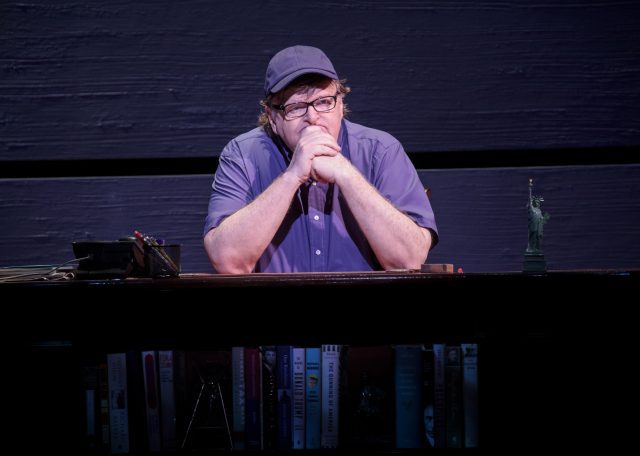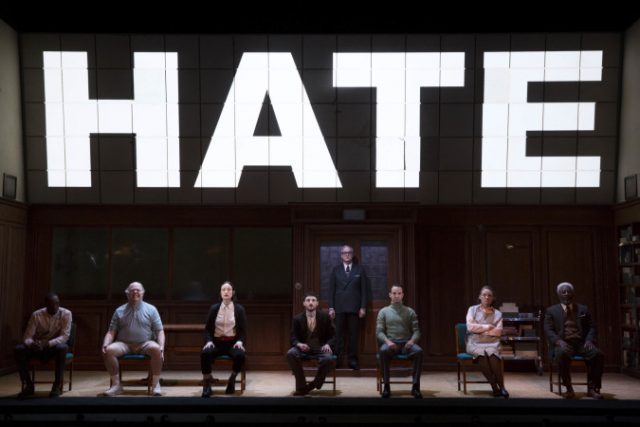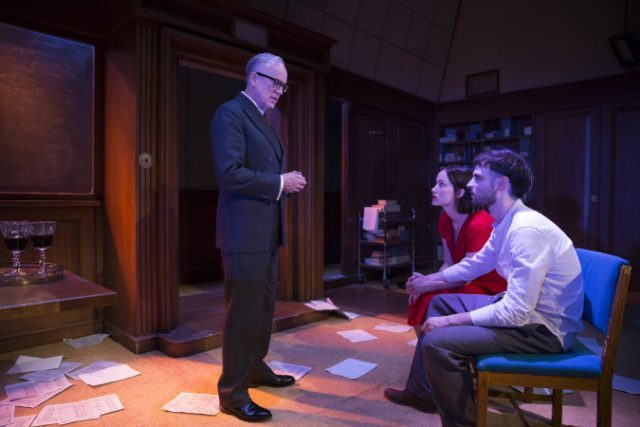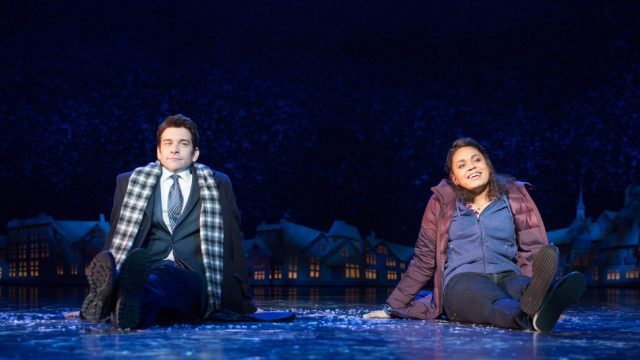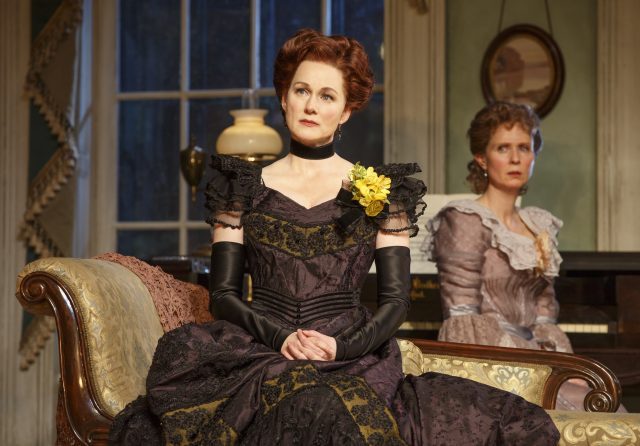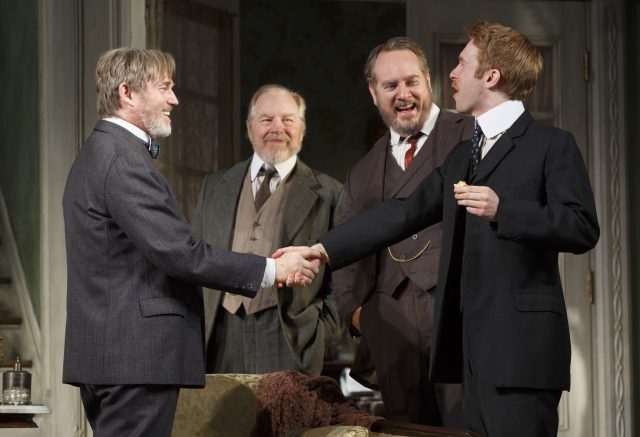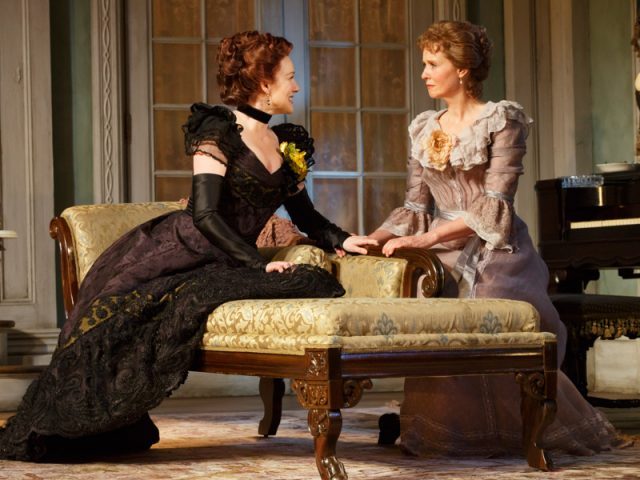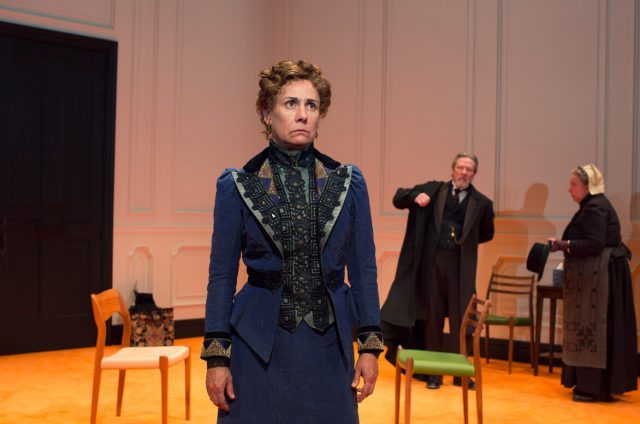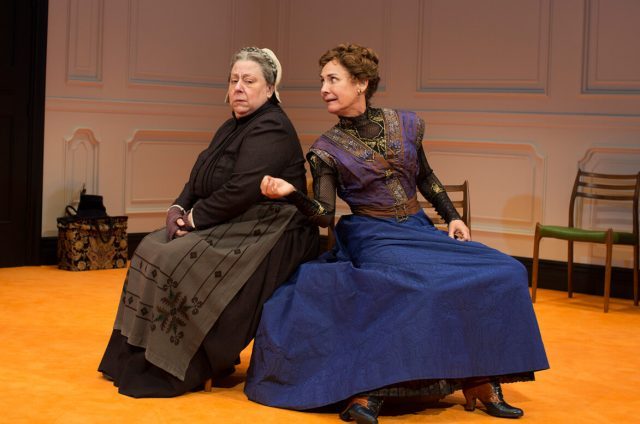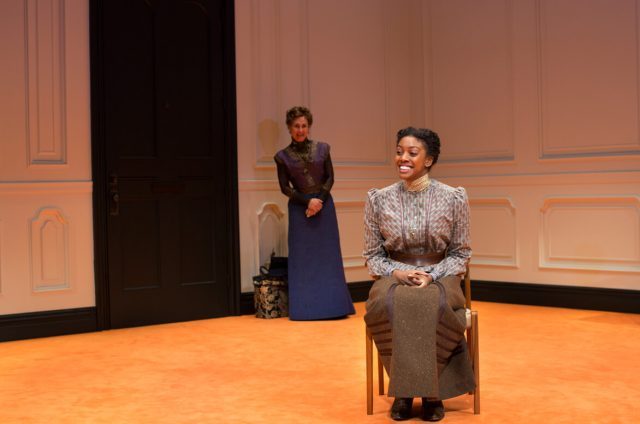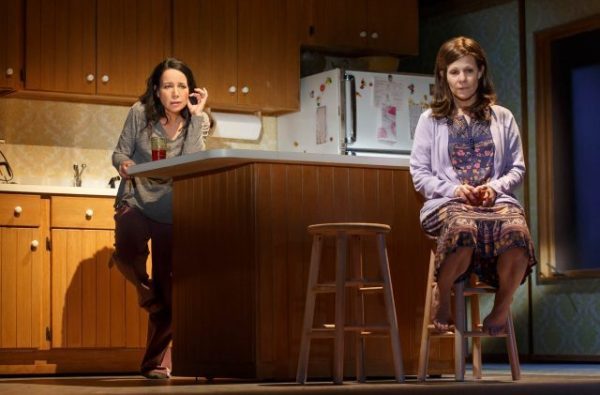
Sisters Lee (Janeane Garofalo) and Bessie (Lily Taylor) reunite after eighteen years in Marvin’s Room (photo by Joan Marcus)
American Airlines Theatre
227 West 42nd St. between Broadway & Eighth Ave.
Through August 27, $47-$127
212-719-1300
www.roundabouttheatre.org
Scott McPherson’s 1990 play, Marvin’s Room, is finally making its Broadway debut, in a touching and funny Roundabout production directed gracefully by Anne Kaufman. The work, which focuses on the complex relationship between two sisters, ran in New York at Playwrights Horizon and the Minetta Lane Theater in 1992-93, winning two Drama Desk Awards (including Outstanding Play) and an Obie, and was then turned into a film in 1996 with an Oscar-nominated Diane Keaton, Meryl Streep, Leonardo DiCaprio, and Gwen Verdon. For its Great White Way bow, it has enlisted a pair of fab actresses to portray the sisters. Lily Taylor stars as Bessie, a forty-year-old woman who has been caring for her ailing father, Marvin (Carman Lacivita), and her partially incapacitated aunt, Ruth (Celia Weston), in their Florida home for decades. “Dad’s dying but he’s been dying for about twenty years. He’s doing it real slow so I don’t miss anything,” Bessie tells Dr. Wally (Triney Sandoval), who is filling in for her regular physician. “And Dr. Serat has worked a miracle with Ruth,” she adds. “She’s had constant pain from her back since she was born, and now the doctor had her get an electronic anesthetizer; you know, they put the wires right into the brain and when she has a bad pain she just turns her dial. It really is a miracle. . . . If she uses it in the kitchen our automatic garage door goes up. But that’s a small price to pay, don’t you think?” The scene’s elements of vaudeville slapstick prepare the audience for Bessie’s discovery that she is sick as well. Her sister, Lee (Janeane Garofalo), arrives from Ohio to offer assistance, along with her two boys, Charlie (Luca Padovan) and the older, deeply troubled Hank (Jack DiFalco). It’s not exactly the most heartwarming of family reunions as everyone tries to decide how far they’re willing to go to help.
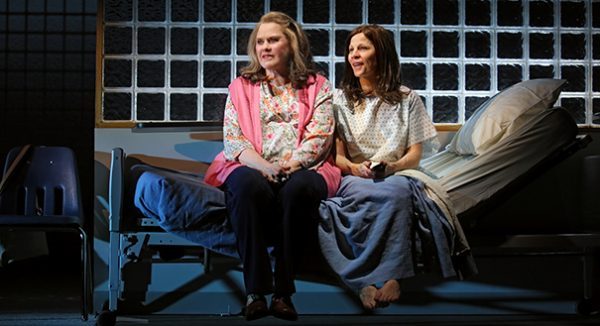
Ruth (Celia Weston) and Bessie (Lily Taylor) have their hands full in Broadway debut of 1990 Scott McPherson play (photo by Joan Marcus)
Garofalo (Russian Transport, The Truth about Cats and Dogs), in her Broadway debut, and Emmy winner Taylor (Aunt Dan & Lemon, Six Feet Under) get the sibling thing just right; they even look somewhat similar, and more so as the play continues. Taylor plays Bessie with a soft vulnerability beneath her hard shell, while Garofalo is excellent at keeping Lee’s motives just under the surface. Whenever they are together, Marvin can be seen in silhouette lying down in the bedroom, a constant reminder of what drove the sisters apart. Tony nominee Weston (True West, The Last Night of Ballyhoo) provides comic relief as the slow-moving, God-fearing Ruth, who refers to a bowel movement as a “stinky.” The set by Laura Jellinek (The Nether, The Wolves) easily slides from kitchen to doctor’s office to hospital room to retirement home while Obie winner Kauffman (Marjorie Prime, Belleville) moves the story at a calm pace despite the occasional fireworks. The play was inspired by childhood memories as well as a different play McPherson was writing, about an AIDS clinic. McPherson later cared for his partner, a cartoonist and activist who died of AIDS in February 1992 at the age of thirty-three; McPherson, who also wrote Scraped, passed away from AIDS complications later that year, at the same age. Marvin’s Room is a tragicomic story that boldly addresses the question of what happens when a caregiver needs a caregiver as well as a bittersweet reminder of the weight of family responsibility and heartbreaking loss.

